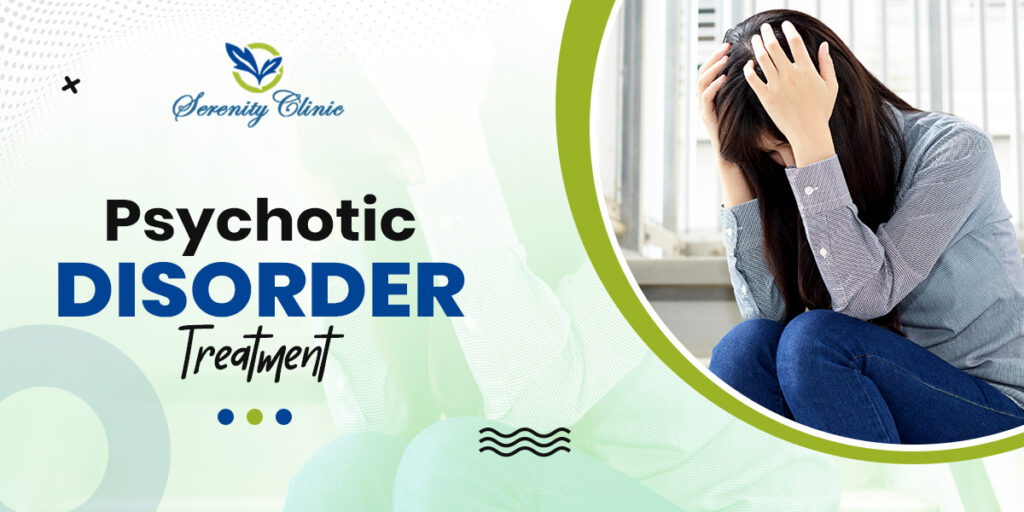Psychotic disorders are mental health conditions that affect a person’s ability to perceive reality. These disorders can be challenging to manage, but there are several accessible treatments. Treatment typically involves a combination of medication, therapy, and support services depending on the patient’s needs.
Treatment aims to control symptoms, enhance the quality of life, and assist the patient in realizing their full potential. With early psychotic disorder treatment, patients can live their lives to the fullest.
Symptoms Of Psychotic Disorder
Psychotic disorders are mental health conditions that can cause an individual a wide range of symptoms, delusions, and hallucinations. Hearing voices or seeing things that aren’t there, having erroneous ideas or misconceptions, having distorted thinking or speech, and displaying strange or unpredictable behavior are some of the most typical symptoms of psychotic disorders.
In addition to emotional changes like melancholy or anxiety, people with psychotic disorders may also experience social isolation due to their symptoms. Psychotic disorders can sometimes make it difficult for a person to function and go about their everyday routines.
It is important to remember that symptoms can differ significantly between individuals and might be affected by the particular type of psychotic condition each person is experiencing. It’s critical to get professional assistance as soon as possible if you or someone you know displays signs of a psychotic disorder.
Why Is Early Intervention Important?
Early intervention is critical for the treatment of psychotic disorders. People can succeed better when psychotic symptoms are recognized and treated early. Early intervention can enhance the patient’s reaction to a medicine and keep the condition from worsening.
Early intervention can also reduce or help prevent the chance of relapse. It has many advantages, but one of the most significant is that it can stop the onset of chronic illnesses, which can be more challenging to treat.
Healthcare providers can help people control their symptoms and minimize the condition’s impact on their daily lives by getting involved early. Early intervention can assist people in getting the resources and assistance they need to manage the disease effectively.
Early intervention can involve a range of approaches, including medication, support services, and therapy. A healthcare expert will collaborate with the patient to create a treatment strategy customized to their unique requirements.
Medication to control symptoms, counselling to help people understand and deal with their conditions, and support services to help with day-to-day activities and community inclusion may all be included in treatment plans.
The treatment of psychotic disorders heavily relies on early intervention. It can reduce the risk of relapse, improve therapy response, and stop the condition from worsening. People can improve their chances of having a successful outcome and leading an entire life by getting treatment as soon as possible.
Psychotic Disorder Treatment Options
Treating psychotic disorders involves a combination of therapy, medication, and support devices. The specific treatment plan will be determined by the patient’s symptoms, the severity of their condition, and their preferences.
Medication
Delusions and hallucinations are among the symptoms that are frequently treated with medication. The most often recommended drugs for psychotic illnesses are antipsychotics. These medicines work by blocking the actions of dopamine, a neurotransmitter involved in the emergence of psychotic symptoms. Antipsychotics can help control symptoms, but they also have risk-averse effects, and finding the right drug and dosage may take some time.
Therapy
Another crucial part of treating psychotic disorders is therapy. Cognitive-behavioral therapy (CBT) can assist people in recognizing and eliminating false assumptions and misconceptions. Family therapy is also beneficial since it helps educate and assist family members to help them understand the patient’s situation.
Support Devices
An essential element of treating psychotic diseases is the availability of support services. Training in social skills, job-related training, and support groups are examples of support services. These devices can aid those who are suffering from psychotic disorders control their symptoms, gain more freedom, and improve the quality of their lives.
Conclusion
Early psychotic disorder treatment can help a person reduce the symptoms of psychotic disorder and live their life to the fullest. Book an appointment at Serenity Clinic today and get the proper psychotic disorder treatment.








